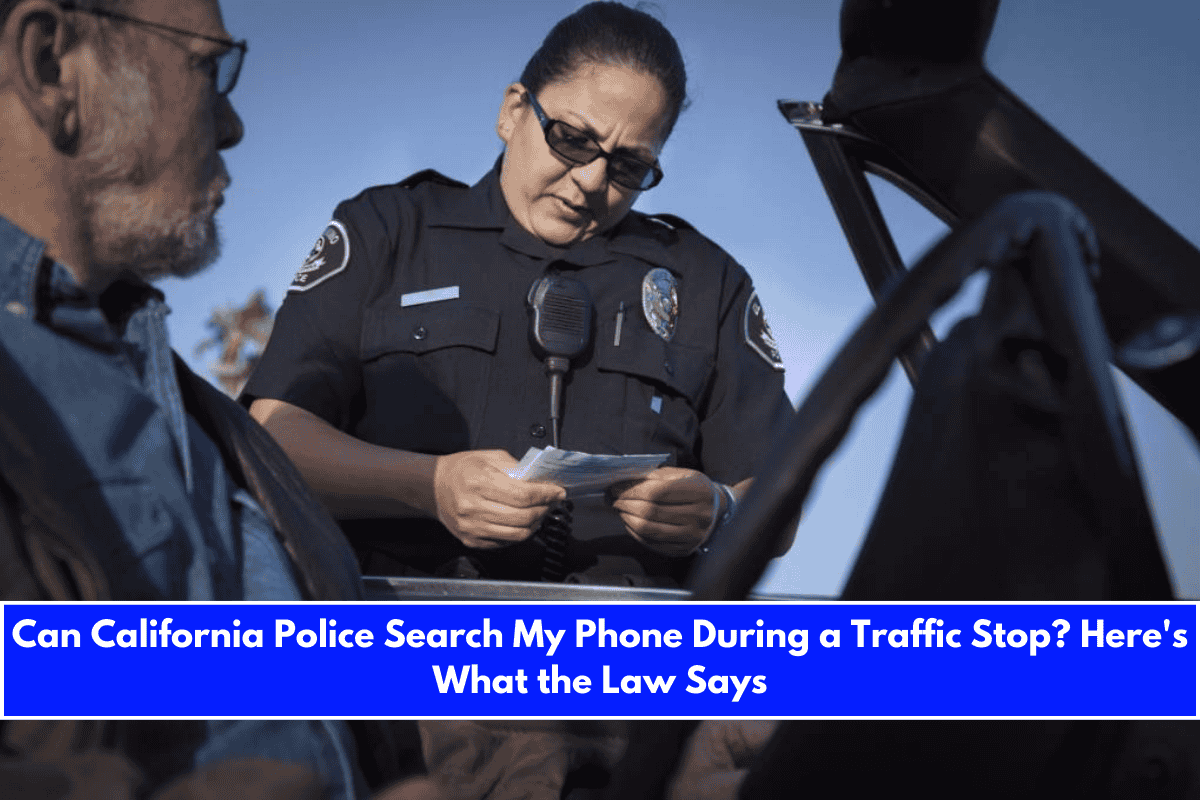The question of whether California police can search your phone during a traffic stop is critical in an age where smartphones contain vast amounts of personal information. Here’s a detailed look at what the law says as of 2025.
General Rule: Warrant Required
In California, police generally cannot search your phone during a traffic stop without a warrant. This principle was firmly established by the U.S. Supreme Court in Riley v. California (2014), which held that searching the digital contents of a cell phone is a significant invasion of privacy and thus requires a warrant supported by probable cause.
The California Electronic Communications Privacy Act (CalECPA) further reinforces this protection, requiring law enforcement to obtain a warrant before accessing electronic device information, unless an exception applies.
Key Exceptions to the Warrant Requirement
There are only a few specific circumstances where police may lawfully search your phone without a warrant:
- Consent: If you voluntarily give police permission to search your phone, they can do so without a warrant. However, your consent must be given freely and not as a result of coercion or threats.
- Probation or Parole: If you are on probation or parole, the terms may allow for warrantless searches by law enforcement.
- Exigent Circumstances: Police may search your phone without a warrant if there are urgent circumstances, such as:
- Preventing imminent danger or bodily harm
- Preventing the destruction of evidence
- Pursuing a fleeing suspect
However, courts have set a high bar for what qualifies as “exigent circumstances,” and police must be able to clearly justify their actions.
What Police Can and Cannot Do During a Traffic Stop
- Seizing the Phone: Police may seize your phone during a traffic stop if they believe it contains evidence of a crime, but they still cannot search its contents without a warrant (unless an exception applies).
- Forcing You to Unlock Your Phone: Police cannot force you to provide a password. The law is less clear on biometric unlocking (fingerprint or face recognition), but generally, you cannot be compelled to reveal a password due to protections against self-incrimination.
- Refusing a Search: You have the right to refuse consent to a search of your phone. Clearly state that you do not consent if asked.
Legal Protections and Best Practices
- Password Protection: Use a strong password (not just biometrics) to secure your phone. This adds an extra layer of protection if your device is seized.
- Do Not Voluntarily Hand Over Your Phone: Unless required by law (such as showing digital proof of insurance), avoid handing your unlocked phone to police.
- Know Your Rights: You have the right to remain silent and to refuse consent to searches. If your phone is searched without a warrant or valid exception, consult an attorney immediately.
California police cannot search your phone during a traffic stop without your consent, a warrant, or a valid legal exception such as probation, parole, or exigent circumstances.
Your digital privacy is protected by both state and federal law, and any search outside these exceptions is likely unconstitutional. If you are asked to unlock or hand over your phone, you have the right to refuse unless police present a valid warrant.
Sources:
- https://www.shouselaw.com/ca/defense/search-and-seizure/phone-searches/
- https://www.egattorneys.com/cellphone-searches-in-california
- https://www.aclunc.org/our-work/legislation/california-electronic-communications-privacy-act-calecpa-sb-178
- https://www.law.cornell.edu/index.php/supct/cert/13-132
- https://epic.org/documents/riley-v-california-2/












Leave a Reply